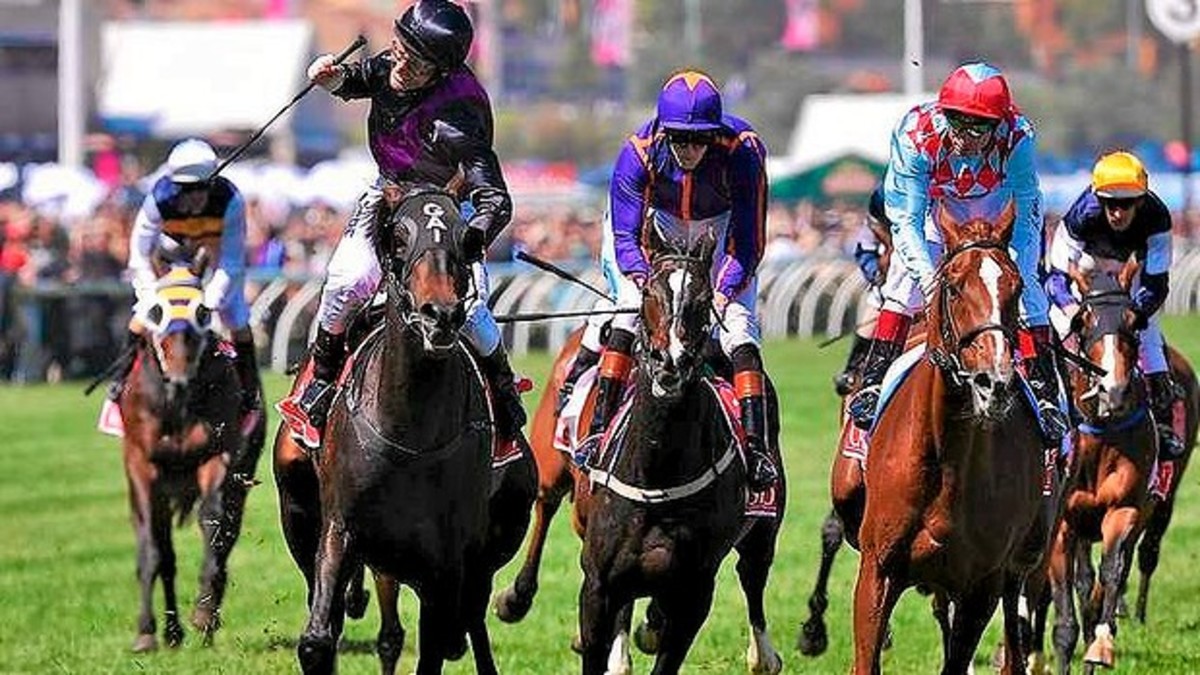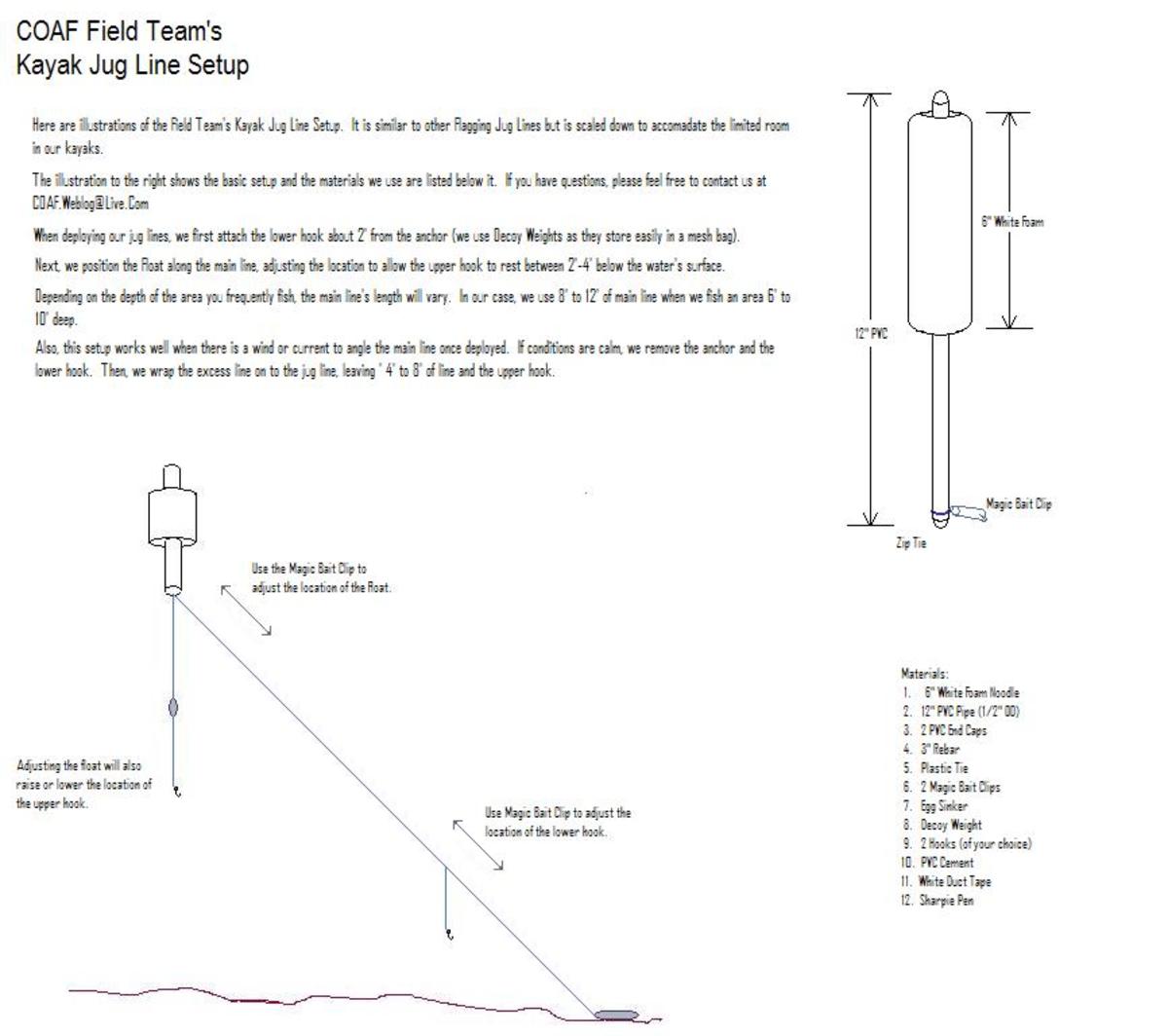How to Bet on Horse Races: A Beginner's Guide
In honor of the Triple Crown, I have decided to
provide a general overview of thoroughbred wagering for beginners
who might want to place a few bets here and there. I'll only be giving you a
very basic look at this because the numerous variations on the betting options could
easily turn into a book. I've also included a few personal racing tips at the end which will hopefully be of some help.
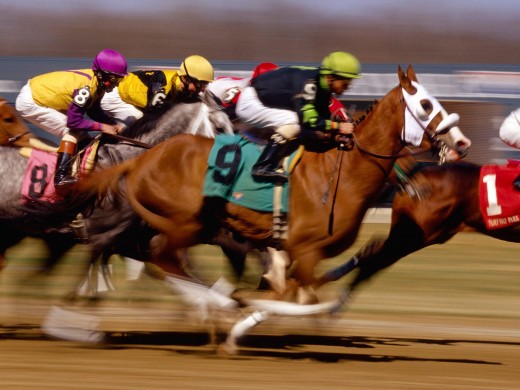
Betting Simplified (I hope)
A. The standard bet is usually $2.00. If you don’t state a specific dollar amount at the counter, your bet will usually be based on this minimum and be split or multiplied according to the bet.
1. First, give the name of the track (Churchill, Pimlico, Belmont, Santa Anita, etc.);
2. Second, give the dollar amount of the bet;
3. Then, give the type of bet (see below); and
4. Finally, give the number of the horse(s) you're betting on - No names
So, the language would be something like this: “Churchill
Downs. $2 Exacta on 1 and 6.”
Note: Your bet will automatically be applied to the current race unless you specify a different race that you want to bet on. If the bet is for later, say the
number of the race between Steps 1 and 2.
B. Single horse: When betting on a single horse, consider the following:
1. Win = the winner; Place = 2nd place; Show = 3rd place
2. Betting on the lesser position gives you a win in that category or higher (but at a lower payoff).
Examples would be:
(a) “Santa Anita. $100 on #6 to Show.” If #6 comes in 1st, 2nd, or 3rd place, I win something.
(b) “Churchill. $100 on #6 to 'Place'.” If #6 comes in 1st or 2nd place, I win something. If he comes in 3rd place, however, I get nothing.
C. Multiple horses: When betting on multiple horses, consider the following:
1. A “STRAIGHT” bet means that the horses must finish in the specified order that you state at the counter. Note that this is the default order, and you don’t usually have to say the word “straight” when making the bet. I would recommend saying it, though, if you are placing several different types of bets at the same time or you just want to make yourself very clear.
2. The most basic terms are the following:
(a) (Straight) Exacta = first two horses finish in exact order;
(b) (Straight)Trifecta = first three horses finish in exact order; and
(c) (Straight) Superfecta
= first four horses finish in exact order
3. For added variety in your betting options, you may also “BOX” any of the above (Exacta, Trifecta, or Superfecta). This means that you may pick the respective number of horses, and the specific order that they finish doesn't matter as long as they come in one of those positions.
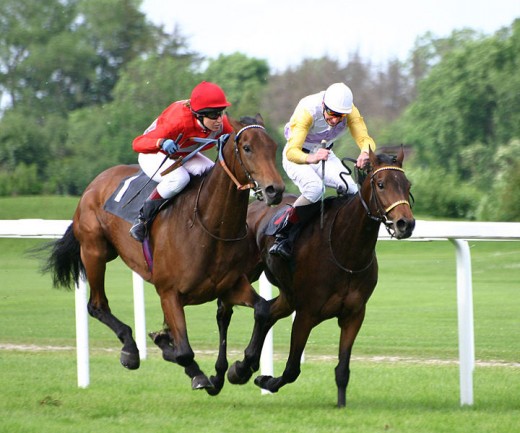
Examples of this would go something like this:
(a) “Belmont. $2 Exacta BOX on 1 & 8.” Here, both horses #1 and #8 must finish in the top two positions, but they can come in either 1st or 2nd place
"Boxing" is essentially placing multiple bets within a certain dollar amount, and this ultimately affects the payoff.
Here’s how it would work in the previous example:
A Straight $2 Exacta = horses #1 (1st) and #8 (2nd) in that order for $2. However, a $2 Exacta BOX = a bet for horses #1 (1st) and #8 (2nd) AND a bet for horses #8 (1st) and #1 (2nd). Both bets are worth $1 and add up to $2.
In other words, a “BOX” means that the bet is for two $1 “STRAIGHT” Exactas in the opposite order. Therefore, if you won on this bet, you would win on a $1 bet and not a $2 bet, and your winnings would be cut in half.
4. There are also several more complicated betting schemes which are variations on the above. The examples below are not an exhaustive list:
(a)"Tri-Key" – This is a variation of a trifecta where you pick the winner (must be accurate) and two other finishers who may come in either 2nd or 3rd place. The winner is described as being "over" the other two. This counts as 2 bets.
Language example: “Pimlico. $2 Tri-Key for #1 “over” #4 and #6.”
(b)"Win-Place (Partial Wheel) Trifecta" - This is another trifecta variation where you pick 2 horses to come in either 1st or 2nd (doesn't matter which), and then the 3rd (must be accurate). You repeat the first two horses twice, and then state that they are “over” the 3rd. This also counts as 2 bets.
Language example: “Belmont. $2 Trifecta, #1/#3, #1/#3 “over” #6.”
5. Note that these betting schemes also apply to greyhound racing, except that an “exacta” is called a “quinela” and is automatically “Boxed” but counts as a single bet.
C. Personal Tips
The following “tips” are just things that I’ve noticed from my own adventures in betting on thoroughbreds and also from talking to other people who seem to know more than me. I do not claim to be an expert, but some patterns tend to emerge pretty often. Feel free to disregard those that conflict with your own experience.
1. Before you start betting, set a reasonable, maximum amount of money that you are comfortable with possibly losing, and don't bet any more than that. This is the best way to avoid the "I have to win it back" mentality. Most of the time, you won’t.
2. Keep in mind that you can still win a lot of money off of the usual $2 bet throughout the course of the day at the track. With that in mind, don’t go overboard by betting too much at one time on any given race (especially if you don’t have the money – see #1).
3. I call this tip “The Big Brown Theory.” For fans who
remember how Big Brown’s Triple Crown run ended a few years back, you may find
a hint of truth in what I’m saying with this one. Sometimes, there is more
money to be won by the overwhelming favorite losing the big race (or sometimes
not even showing up in the top 3 or 4). I'm not making any accusations. Just something to think about.
4. Learn how to read the program so that you'll depend less on fluctuating (and sometimes very misleading) odds.
5. This is more of a fact than a tip. For those who don’t know, race tracks are typically measured in furlongs. One furlong is equal to one-eighth of an international mile, to 220 yards, and to 660 feet. Races usually range between 5 furlongs and 1 1/2 miles.
6. For purposes of stamina, pay attention to the distances horses are accustomed to running. If the horse usually runs shorter distances, it might have trouble in longer races.
7. When it comes to "maiden" races, stats are usually insufficient. If you must bet on this type of race, the safest route is to consult the racing program and just bet on the jockey with the best record for winning that type of race.
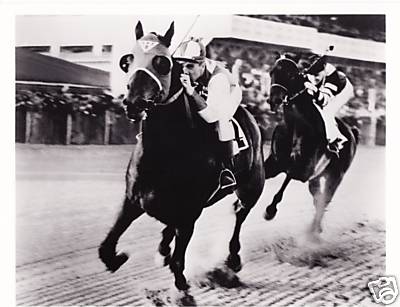
8. Jockeys matter! If a jockey usually rides a certain horse but for some reason is riding another one in a big race, there might be a reason for it (positive or negative) and make note of the change.
9. I’m sure that they will have to do some more research on this tip, but this is just something that I’ve noticed more than a few times in the past. Horses seem to carry vendettas against other horses. Check the program stats to see which lost to which on another occasion and by how much. The loser might have something to prove this time around if it was a close call at the finish against the same horse.
10. Not all tracks are created equal. When looking at workouts on the program, see which track that horse worked out on prior to the current race. A tougher workout track may mean that the horse will handle the current track more easily if it is less demanding by comparison.
11. A guy that I met at the track once (who said he used to train horses) told me this one. He said that when it comes to workout stats, sometimes (but certainly not always) the better horse is the one that doesn't work out as much. Trainers don't push some horses as hard because they don't have to. They just let the horse run if it has the ability.
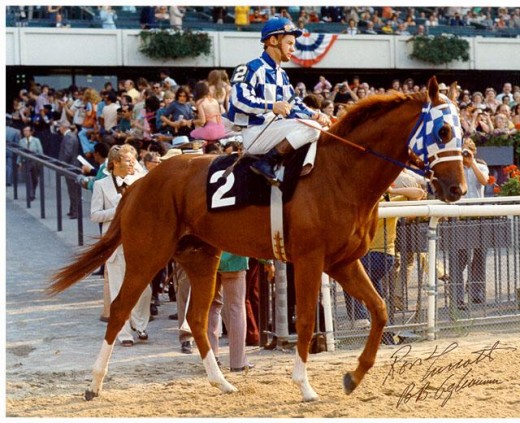
12. Horse racing isn’t like the lottery. Of course, you can guess the winner (and some people play that way), but you can also pick up on the skill side of it, too. If you are observant, you can narrow the field and have a better chance at winning.
13. Exacta bets may pay less, but they are easier to win
than trifectas and superfectas.
14. Always check your ticket after you place a bet to make sure that it is accurate. You don't want your horses to come in only to find out that your ticket was accidentally punched for a different track or race.
15. Have fun! You tend to lose more when you're being too serious about it and
trying to pay the bills with your winnings.
That’s pretty much all that I have to say for right now. I hope this was helpful and that you have fun at the races. Feel free to contact me and share some of your winnings if you hit it big after reading this.



